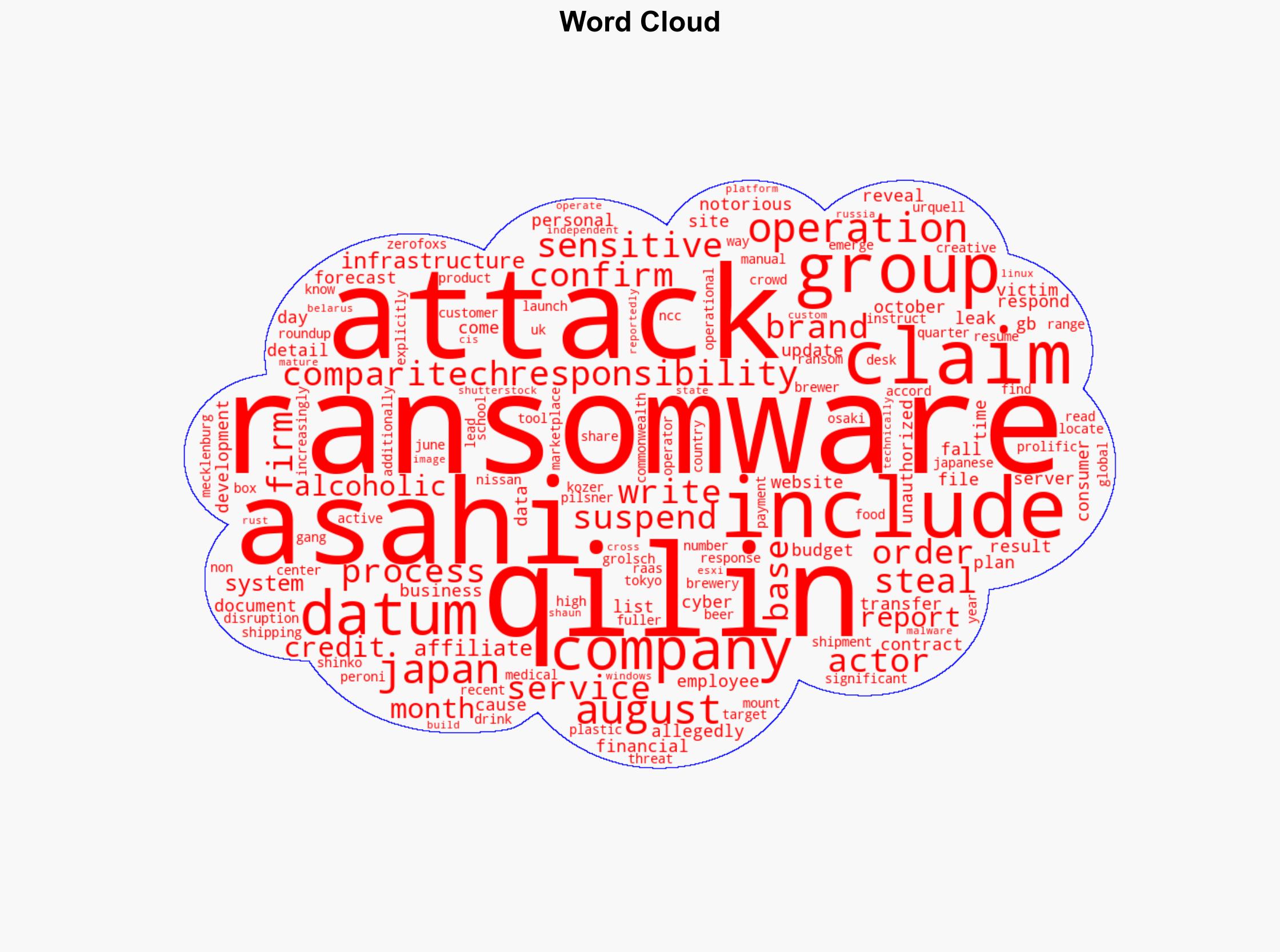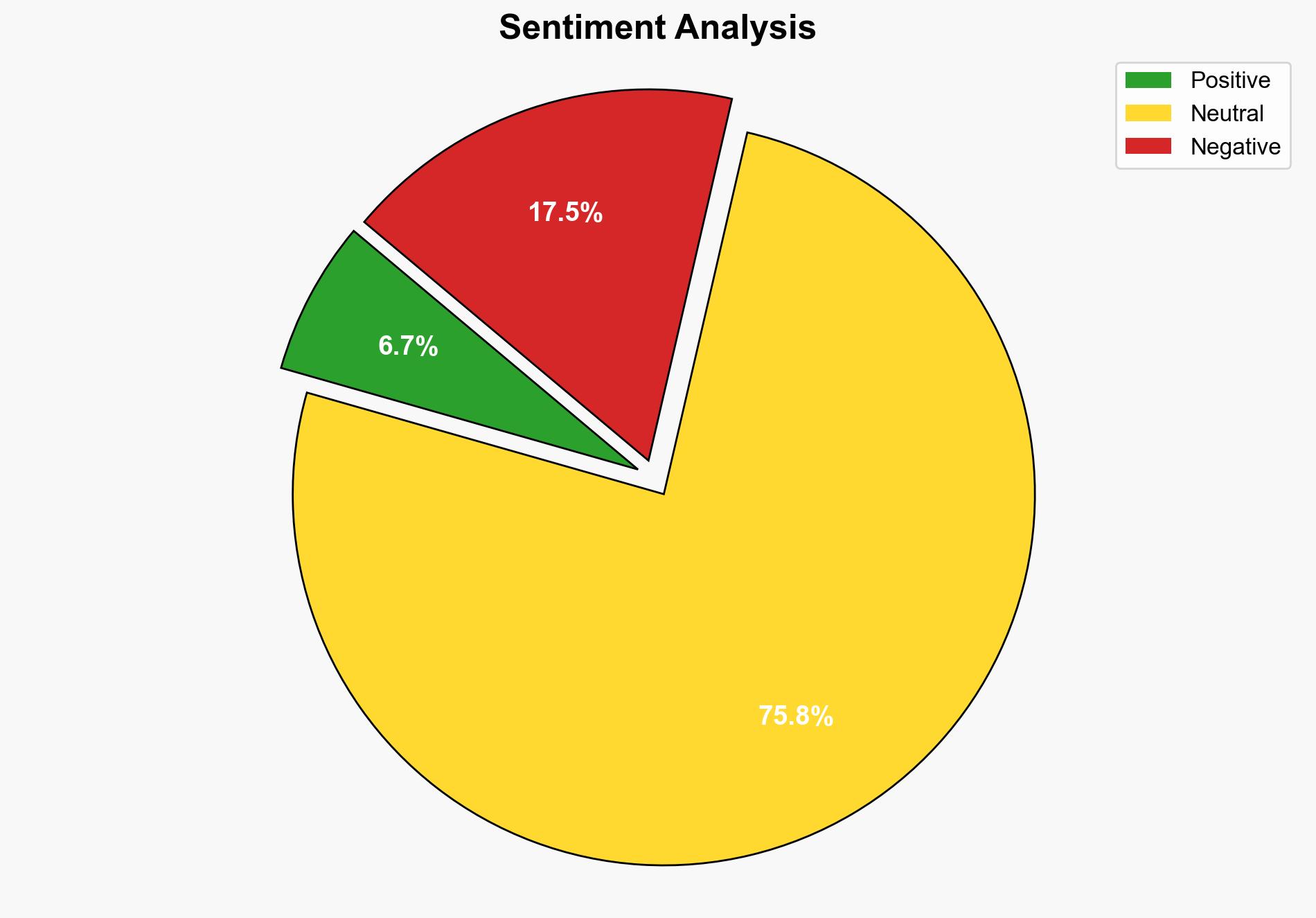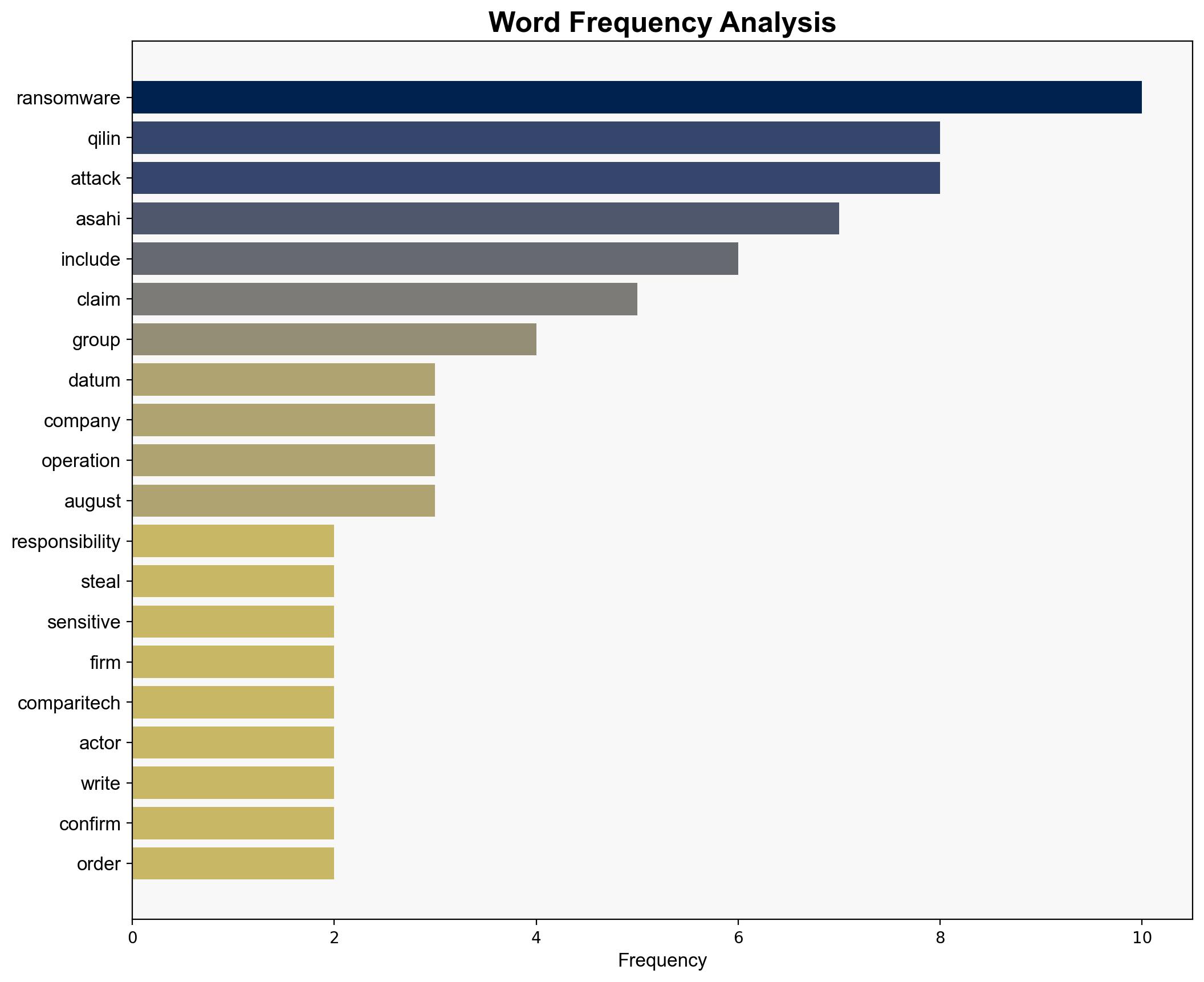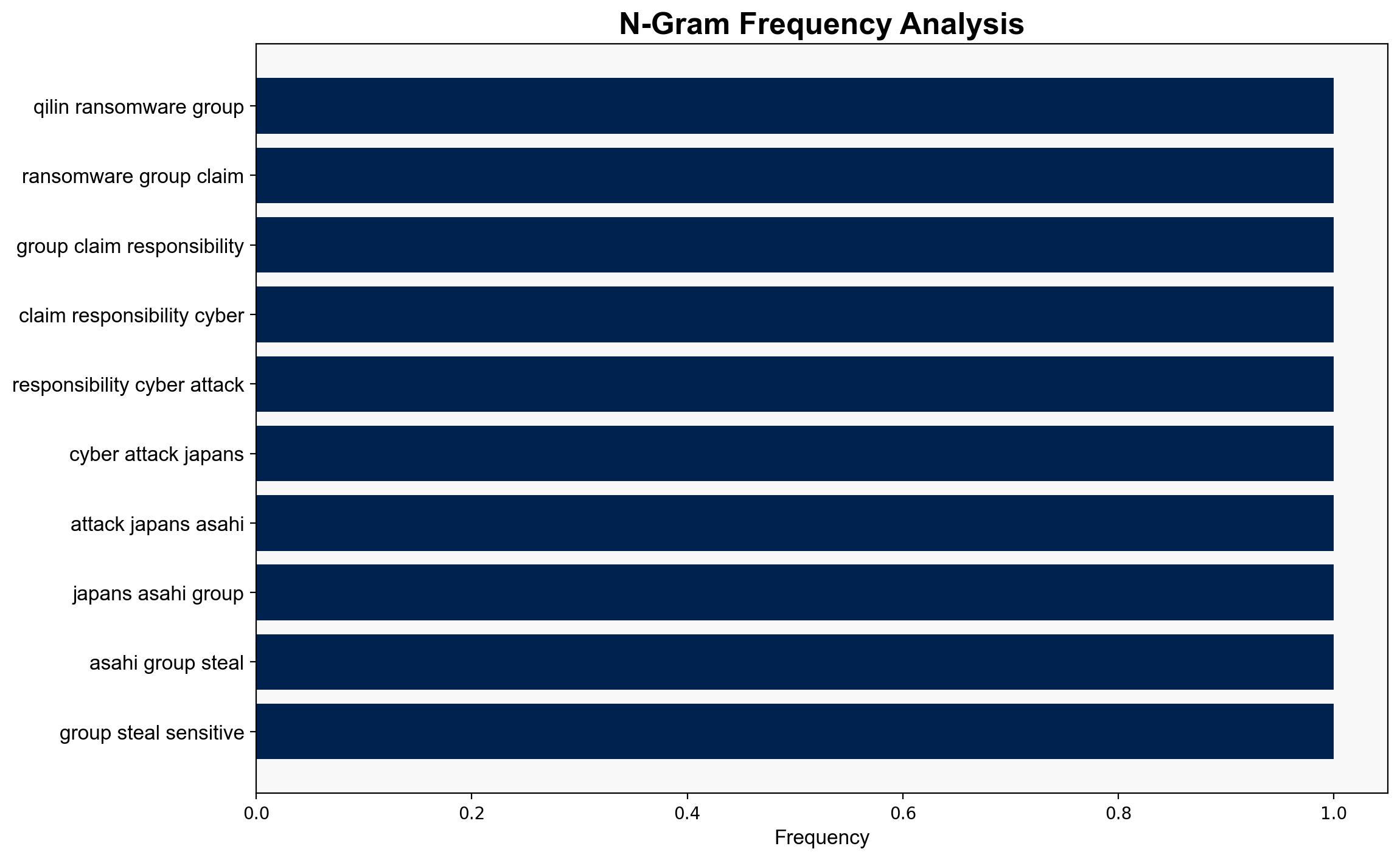Qilin Ransomware Gang Claims Asahi Cyber-Attack – Infosecurity Magazine
Published on: 2025-10-07
Intelligence Report: Qilin Ransomware Gang Claims Asahi Cyber-Attack – Infosecurity Magazine
1. BLUF (Bottom Line Up Front)
The Qilin ransomware gang has claimed responsibility for a cyber-attack on Japan’s Asahi Group, resulting in significant operational disruptions. The most supported hypothesis is that Qilin executed the attack to extort Asahi by leveraging stolen sensitive data. The confidence level is moderate due to the gang’s history and technical capabilities. Recommended action includes enhancing cybersecurity measures and preparing for potential data leaks.
2. Competing Hypotheses
Hypothesis 1: Qilin ransomware gang executed the attack on Asahi Group to extort financial gains by threatening to leak sensitive data.
Hypothesis 2: A different cybercriminal group executed the attack, and Qilin is falsely claiming responsibility to bolster its reputation in the cybercriminal community.
Using the Analysis of Competing Hypotheses (ACH) 2.0, Hypothesis 1 is better supported due to Qilin’s established pattern of targeting companies for financial extortion, as evidenced by their previous attacks on Japanese firms. Hypothesis 2 is less supported due to the lack of evidence of another group’s involvement and Qilin’s technical capability to execute such attacks.
3. Key Assumptions and Red Flags
Assumptions include the belief that Qilin’s claim is genuine and that their technical capabilities align with the attack’s complexity. A red flag is the absence of independent verification of Qilin’s involvement. Potential cognitive bias includes confirmation bias towards Qilin’s involvement due to their notoriety.
4. Implications and Strategic Risks
The attack highlights vulnerabilities in Asahi’s cybersecurity infrastructure, posing risks of further data breaches and financial losses. There is a potential for cascading threats if sensitive data is leaked, impacting Asahi’s reputation and consumer trust. Geopolitically, this incident could strain Japan’s cybersecurity posture and necessitate international cooperation against cyber threats.
5. Recommendations and Outlook
- Enhance cybersecurity protocols, including regular audits and employee training, to prevent future breaches.
- Prepare a crisis communication plan to address potential data leaks and reassure stakeholders.
- Engage with cybersecurity firms for threat intelligence and monitoring.
- Scenario-based projections:
- Best Case: Asahi strengthens its cybersecurity defenses, preventing further attacks.
- Worst Case: Leaked data leads to significant financial losses and reputational damage.
- Most Likely: Asahi mitigates immediate threats but faces ongoing cybersecurity challenges.
6. Key Individuals and Entities
Qilin ransomware gang, Asahi Group Holdings, Comparitech, ZeroFox, NCC Group
7. Thematic Tags
national security threats, cybersecurity, counter-terrorism, regional focus





